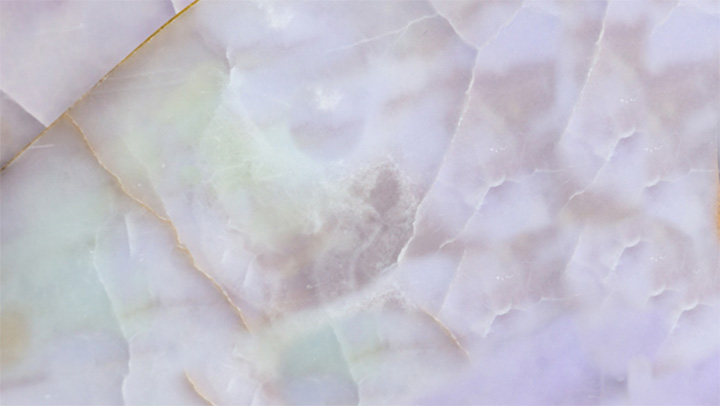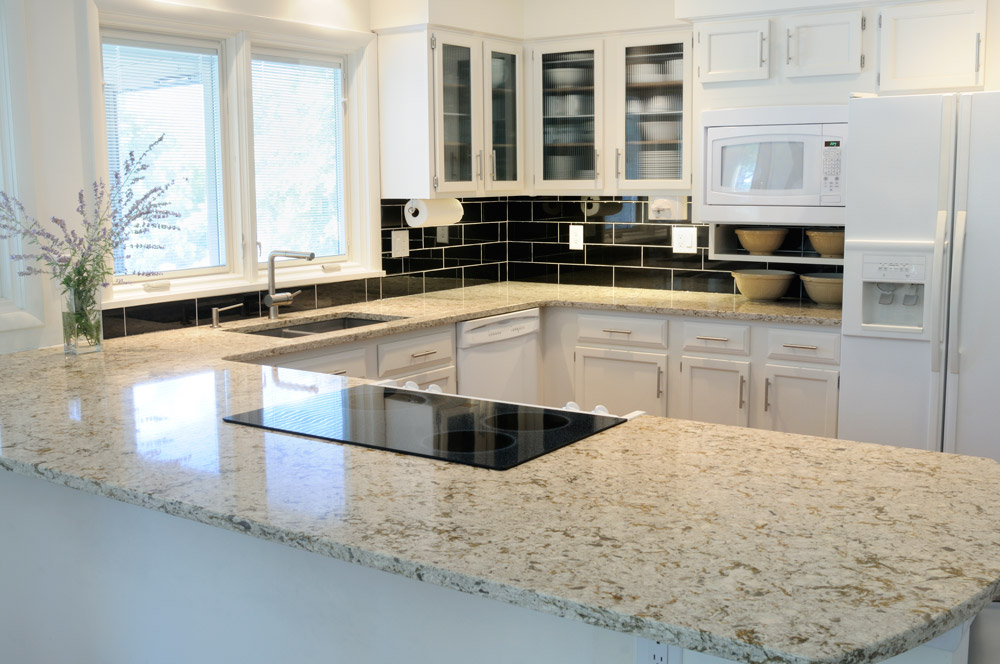You should have heard about the benefits of quartz and other natural stone counter materials – they are hard, durable, resistant to heat, aesthetically pleasing and can increase the resale value of your home. While quartz and natural stone materials (like granite and marble) are the popular choices for bathroom and kitchen counters, they offer differences in durability, looks, and functionality.
In your eagerness to select the right counter material for your new kitchen and bathroom or remodel, you’ve narrowed down your options to two materials: engineered stone (quartz) or natural stone. Now, you’re probably wondering:
- Should I ditch natural stones and go for quartz?
- What does quartz offer that other natural stones cannot?
Quick Differences Between Quartz And Other Natural Stones
Natural stones (like granite, marble, soapstone, etc.) are naturally occurring stones that are quarried or mined from the earth. These stones are sawn into slabs and are later precisely cut, polished and sealed before they are being used as a countertop material.
Quartz is also a naturally occurring stone, but the one used in countertops is engineered. That is because it is fabricated in a factory using synthetic materials and, natural silicon dioxide and then molded and baked into slabs. So, quartz counters contain about 90 – 94 percent of quartz mined from the earth while the other 6 – 10 percent of its constituents are the pigments and human-made polymer resins that bind the quarts together.
The Benefits Of Quartz Over Other Natural Stones
Quartz Is Available In More Patterns And Colors
While natural stone materials come in limited colors and patterns, engineered stone is available in more color and patterns, especially those that are not found with natural stones. That is because the pigments added to engineered quartz counter materials during its fabrication process can be used to attain a wide variety of colors from deep pinks to light blues, or even orange or violet. Also, quartz countertop manufacturers like Marble.com can vein or fleck it in the factory so that it displays diverse uniform patterns across its length.
Quartz materials are widely available and can mimic the look of granite and other natural stones. That means you can easily find the color and pattern that suits your style or interior décor with quartz materials than you can with other natural stone surfaces.
Quartz Shape And Design Is Easy To Customize
One of the main reasons why quartz material is increasingly becoming popular among designers and homeowners is because of its look and ease of customization. It has the appearance of stone while allowing designers and homeowners to customize its shape and design. Quartz is easy to customize since its producer can pour it into a mold during its fabrication process, to produce virtually any design and shape.
However, the same cannot be said of other natural stones since they must be sawn into slabs and precisely cut with diamond blades in a procedure that requires a lot of skills and takes time.
Quartz Resists Microbes And Moisture Without Sealer
While natural stone products like granite, marble, soapstone, slate, gemstone, limestone, etc., are great countertop options, they are porous and susceptible to stains if not maintained and sealed properly. That means, food waste, water spills, and other standing liquid can soak in and stain the surface permanently. Also, natural stone surfaces can crack, scratch, or chip, thus, making it susceptible to staining and invasions by microorganisms.
Quartz, on the other hand, is a non-porous material that does not require sealing. It has no holes or cracks where water and harmful microbes that can cause health issues can lodge into – this makes bacteria inversions and permanent staining unlikely.
Quartz Is A Low Maintenance Option
Like I said before, quartz is not a porous material; it comes pre-sealed and does not require occasional sealing to protect it against water stains or keep it looking pristine for many decades to come. Its surface is very hard and resistant to moisture – this makes it a great countertop option for bathrooms and hardworking kitchens.
With quartz countertops, you can entertain your guests without worrying whether the spills from their drinks will get into your counter and stain it permanently. Instead of getting into your counter, the spilled drinks, standing liquid or dirt will remain on its surface where you easily wipe them off with a towel. Quartz surface is very easy to clean and require very little maintenance. It is smooth and even and only calls for wiping down its surface with a dampened cloth or towel and a commercial surface cleaner to keep it looking good – so, no intense scrubbing session is required to get the stain and dirt out.
While you can clean natural stone products with the same regimens as quartz, their porous surfaces are prone to stains and microbial inversions if they’re not sealed. Also, they require more TLC and maintenance culture like regular cleaning and occasional sealing (at least once in a year) to avoid stains and ensure their longevity.
Quartz Is Tough And Durable
Registering a “7” on the Moh’s mineral hardness scale, quartz is harder and more flexible, durable and scratch-resistant than other natural stone surfaces which registers between “3 and 6.5” on the hardness scale (depending on the type of the stone). That means you’ll worry less about scratching, cracking, chipping or damage via a high impact blow to your quartz countertop as often as you’ll do with other natural stone countertop materials.
Moreover, quartz is resistant to water stains; it comes pre-sealed and coated to make them tougher and resistant to stains – this means your quartz surfaces will retain their look for years. Even if you have a very hardworking kitchen, you and your family will enjoy your quartz surface without worrying about permanent stains, scratches, dents or fixing chips and cracks – isn’t that what you’ve always wanted?
Final Words
Deciding between a quartz surface or other natural stone surfaces is not an easy task since both are great counter options, and the difference between these materials is not apparent. However, this post has highlighted the key difference between the two and what quartz can offer that other natural stones cannot, so you can feel much more confident if selecting this material appeals to you.










